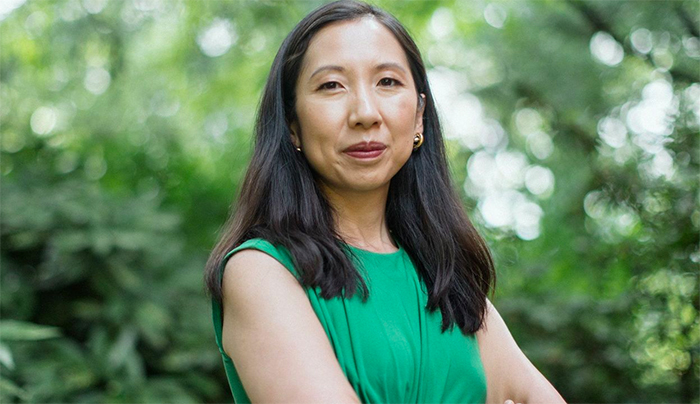
Dr. Sanjay Gupta: Why Haven’t We Cured the Common Cold?
The average person gets two to four colds a year. With all the missed school and work, that adds up to an economic impact of…
Thought Leader: Sanjay Gupta

Leana Wen was a medical student when she first saw “the limitations of our healthcare system,” she says. She remembers vividly an 8-year-old boy with severe asthma who would come to the emergency room wheezing and coughing. After hours of treatments he was usually well enough to leave, but he was often back a few days later, frightened and gasping for breath.
The problem, says Dr. Wen, 38, wasn’t the hospital, which was “one of the best” in the country. It was that the boy was shuttling between homeless shelters and the homes of relatives and friends, who often smoked. Even after the boy and his mother got their own row house, nearby units riddled with mold and a local incinerator kept him returning to the ER.
Dr. Wen had assumed she could do the most good if she worked in emergency medicine, serving the most vulnerable patients and never turning anyone away. But as she writes in her new book, “Lifelines,” out July 27, years of working in a hospital left her frustrated by what she couldn’t heal.
America offers excellent “sick care,” Dr. Wen explains over the phone from her home in Baltimore, where she lives with her husband and two young children. Patients in the ER often receive state-of-the-art treatment, and the country’s many specialists and advanced technologies draw privileged patients from around the world. But all of this involves treating problems as they arise, she says. “We don’t have a system in place to incentivize preventing catastrophic outcomes in the first place.”
‘There’s a saying that public health saved your life today, you just don’t know it.’
Dr. Wen’s desire to address the root causes of what she saw in the ER led her into public health. “There’s a saying that public health saved your life today, you just don’t know it,” she says with a chuckle. As Baltimore’s health commissioner from 2014 to 2018, she was instrumental in reversing overdoses from opioids, expanding access to mental-health treatments and providing eyeglasses to young students.
But because public-health measures aim to dodge crises before they arise, their achievements tend to be invisible. No one hears about the food poisoning that didn’t happen, Dr. Wen explains: “There’s no face in prevention.” This is a problem, she says, because accomplishments that go unnoticed are often undervalued. State and local public-health spending dropped 16-18% over the past decade, according to the Associated Press and Kaiser Health News.
Dr. Wen argues that chronic underfunding at the local level and “mismanagement, incoherence and denial at the top” explain why the U.S. has led the world’s rich countries in rates of Covid-19 cases and deaths, according to data from Johns Hopkins University. She acknowledges that the statistics of the pandemic, which has claimed over 608,000 American lives, can seem abstract and remote. But as an emergency physician, she sees the effect of Covid-19 “on the faces of my patients.”

Dr. Wen as a resident in emergency medicine at Brigham and Women’s Hospital in Boston, August 2012.PHOTO: STEVEN SENNE/ASSOCIATED PRESS
Dr. Wen’s desire “to give back” as a physician comes from her own experiences as an immigrant. She was nearly eight when her parents, seeking political asylum, brought her to the U.S. from China. They juggled multiple menial jobs in Utah and Los Angeles so that she and her younger sister could have a better life. The family had bouts of homelessness and relied on Medicaid and food stamps for years. Her mother would say, “Always remember how good this country has been to us.”
Dr. Wen applied to college in eighth grade, having learned that California State University, L.A., accepted young students in a program that covered tuition and expenses. As a 13-year-old college freshman, she worked hard, rarely socialized, and worried that her dreams of becoming a doctor were “ludicrous,” she says. But when she finally admitted her ambitions to her professors, they swiftly introduced her to other “nontraditional students,” who helped her navigate the unspoken rules for getting into and making it through medical school.
Dr. Wen was a medical student at Washington University in St. Louis when she encountered an epileptic man in the ER who was having a seizure, his blond hair matted with blood. The man’s wife explained that he had lost his health insurance when his firm downsized, and his “pre-existing condition” made it too pricey for him to join her coverage. Having run out of his costly seizure medications, he died a few days later. Although the Affordable Care Act has made such incidents rarer, Dr. Wen says, his death was a “haunting” indictment of America’s health-care system.
As she became a more prominent advocate for the needs of patients, Dr. Wen realized she needed to address her “greatest shame”: her stutter. A “covert stutterer,” she could hide her impediment by avoiding “sticky” words. But the stress of “always thinking two sentences ahead” made her anxious. She says it took years of therapy to accept her speech disorder: “The moment I try to hide it is when everything goes downhill.”
After years as a Rhodes scholar at Oxford University and an emergency-medicine resident in Boston, Dr. Wen got her “dream job” as the top health official of Baltimore, where many residents suffer from untreated chronic illnesses and nearby neighborhoods can have a difference in life expectancy of 20 years. She developed a reputation as a pragmatist, harnessing a broad coalition to push for paid sick leave legislation, which went into effect in 2018. She also widened access to naloxone, an antidote for opioid overdoses.
Dr. Wen intended to bring the same practical mind-set to Planned Parenthood, where she was hired as president in 2018. She was initially reluctant to leave Baltimore, but she had relied on Planned Parenthood for Pap tests and birth control growing up, and she was increasingly concerned about the state of women’s health. “It’s shocking to me that women today are more likely to die in pregnancy than our mothers,” she says. “Or that Black women are three times more likely to die in childbirth than white women.”
As its president, Dr. Wen hoped to reposition Planned Parenthood as a place that treated ‘the whole person.’
Many of these women are dying because of “their ongoing unmet health needs,” says Dr. Wen. She hoped to address these problems by repositioning Planned Parenthood as a place that treated “the whole person,” with services for diabetes and depression in addition to reproductive care and abortion.
But Dr. Wen’s efforts to promote Planned Parenthood’s less controversial work—such as cancer screenings, contraception, HIV tests and vasectomies—raised hackles internally. Her attempts to appeal to conservatives also drew opposition from colleagues who, she says, believed “it was time to fight, not to build bridges.” Ousted within a year, Dr. Wen says that she still feels a “profound appreciation” for the people she met at clinics across the country who are working to help women of all ages lead healthier lives.
Dr. Wen says she came away from the experience with a stronger sense that she is not a partisan activist. Rather, she is a physician who believes it’s easier to make change when you “focus on points of agreement” rather than on divisive issues. Although working in public health often means reckoning with intractable problems, Dr. Wen says that concentrating on feasible solutions is key to avoiding burnout. “You can’t just throw up your hands,” she says. “You have to start somewhere and try to do your part.”
Dr. Sanjay Gupta: Why Haven’t We Cured the Common Cold?
The average person gets two to four colds a year. With all the missed school and work, that adds up to an economic impact of…
Thought Leader: Sanjay Gupta
Erika Ayers Badan: How to Keep Creativity Alive
Hi! Ever felt like you’re on a Disney ride through every big-company headache imaginable? Think lawyers, bankers, finance goons, stale conference rooms, staid conversations and…
Thought Leader: Erika Ayers Badan
Chris Miller: Trump’s Nvidia Chip Decision Lands Hard
In a new article, “Allowing China access to advanced semiconductors puts national security and U.S. AI industry at risk,”Chris Miller — author of Chip War…
Thought Leader: Chris Miller

